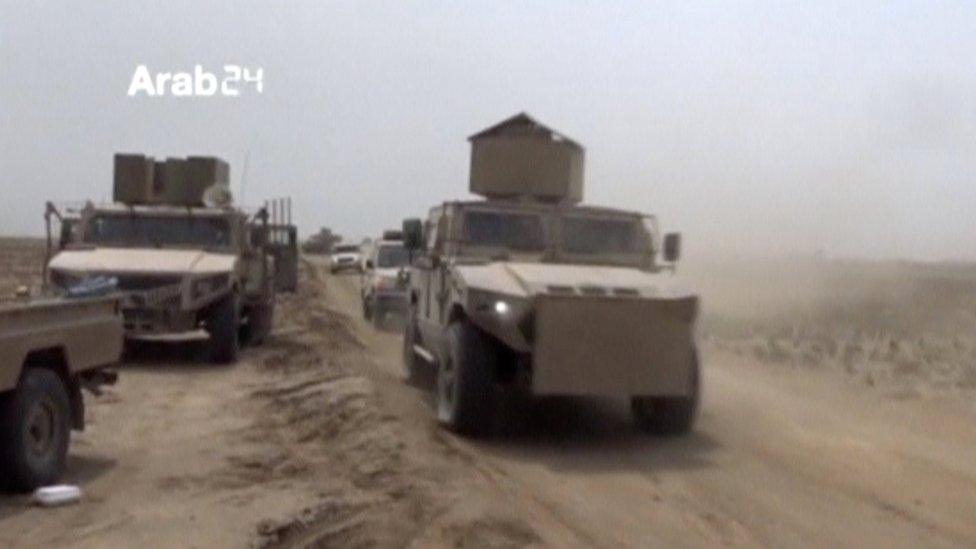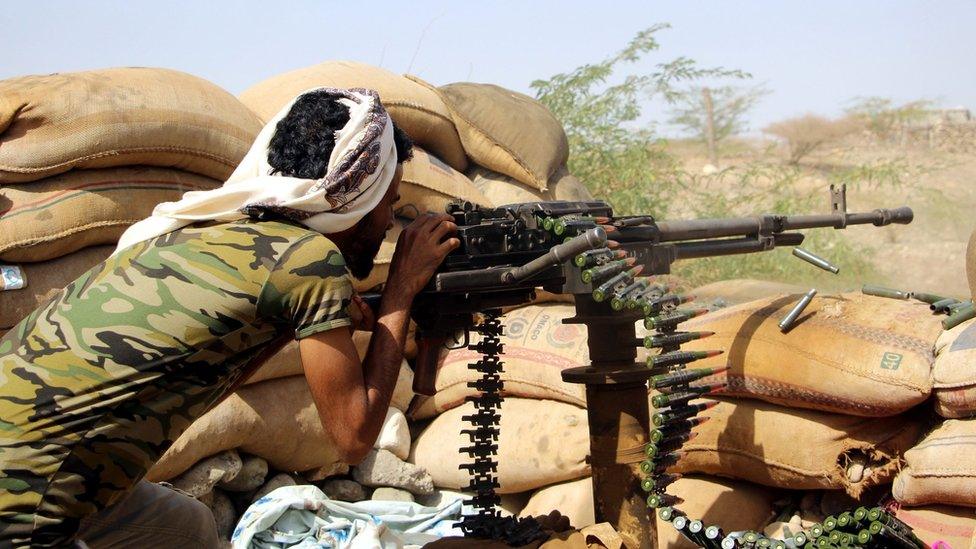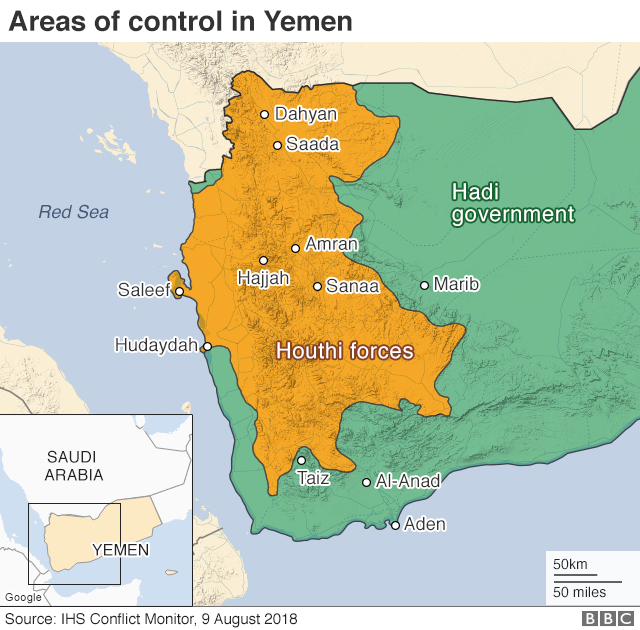UAE arming Yemen militias with Western weapons - Amnesty
- Published

Amnesty International analysed video footage from the recent battle for Hudaydah
The United Arab Emirates is recklessly arming militias in Yemen with advanced weaponry supplied by the US and other states, Amnesty International alleges.
Armoured vehicles, mortars and machine-guns are being diverted illegally to unaccountable groups accused of war crimes, according to a report.
The UAE is part of a Saudi-led coalition backing Yemen's government in its war with the rebel Houthi movement.
It has not commented on the report, but denies violating US arms exports rules.
A top US general said on Tuesday that officials would investigate whether weapons were being transferred to unintended recipients by the coalition.
Yemen has been devastated by a conflict that escalated in early 2015, when the Houthis seized control of much of the west of the country and forced President Abdrabbuh Mansour Hadi to flee abroad.
Where the fighting in Yemen has stopped... but not the suffering
Alarmed by the rise of a group they saw as an Iranian proxy, Saudi Arabia, the UAE and seven other Arab states intervened in an attempt to restore the government.
At least 6,800 civilians have been killed and 10,700 injured in the fighting, according to the UN.
Thousands more civilians have died from preventable causes, including malnutrition, disease and poor health.
Amnesty said publicly available data showed that since 2015, Western states had supplied the UAE with at least $3.5bn (£2.7bn) worth of weaponry.
The human rights group analysed video footage and photographs from the battle for the key Red Sea port city of Hudaydah, external and found that the same makes and models of military vehicles and weapons as those sold to the UAE appeared to be in use by pro-government militias on the ground.

The UAE is part of a Saudi-led coalition backing Yemeni pro-government forces
It said US-supplied armoured vehicles equipped with heavy machine-guns, including M-ATV, Caiman and MaxxPro models, were seen in the hands of three UAE-backed militias - the Security Belt, Shabwani Elite Forces, and The Giants.
Belgian Minimi light-machine guns, Serbian-made Zastava MO2 Coyote machine-guns, and Agrab armoured-truck-mounted Singaporean 120mm mortar systems were also being used by UAE-allied militias in Hudaydah, it added.
Amnesty said the militias were not accountable to any government and that some stood accused of committing war crimes, including during the offensive on Hudaydah, which was halted in December after the UN brokered a local ceasefire.
"Only a handful of countries have done the right thing and stopped the conveyor belt of arms to the Yemen's devastating conflict," said Patrick Wilcken, Amnesty's arms control researcher.
"Others must follow in their footsteps or they will share responsibility for the devastating toll these billions of dollars' worth of arms transfers are wreaking."


There was no response from the UAE. But on Tuesday a senior official was quoted by CNN as denying "in no uncertain terms that we are in violation" of US arms export controls, which do not allow the retransfer of equipment without prior US government authorisation.
It came after CNN said it had evidence that US-made weaponry and equipment provided to the UAE and Saudi Arabia had ended up in the hands of allied fighters from a Salafist militia, external linked to al-Qaeda in the Arabian Peninsula - the Abu al-Abbas Brigade - and even Houthi rebels.
Gen Joseph Votel, head of the US military's Central Command, expressed concern about the report at a Senate Armed Services Committee hearing on Tuesday.
"We have to look more closely at the allegations in this particular situation to find out what happened," he said. "We will have to examine that better."